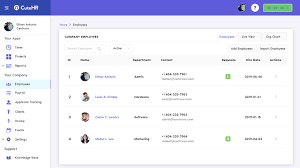Define Insurance Brokers: What They Do & Why You Might Need One

When it comes to purchasing insurance, the number of options, policies, and providers can feel overwhelming. That’s where insurance brokers come in. But before choosing one, it’s essential to define insurance brokers clearly and understand their unique role in the insurance world.
This guide will not only define insurance brokers but also explain what they do, how they differ from insurance agents, and the benefits of working with one.
1. Define Insurance Brokers: A Simple Explanation
To define insurance brokers, think of them as licensed professionals who represent clients rather than insurance companies. Unlike insurance agents, who usually work for one insurer, brokers work independently. Their main goal is to help individuals or businesses find the most suitable insurance coverage at the best price.
In simpler terms, an insurance broker acts as your personal advisor in the insurance market.
2. How Insurance Brokers Work
Once we define insurance brokers, the next question becomes: what exactly do they do?
Here’s a breakdown of their main responsibilities:
-
Understanding client needs: They evaluate your financial situation, risk factors, and insurance requirements.
-
Shopping the market: Brokers compare multiple insurance products from different providers.
-
Policy recommendation: They suggest policies that best fit your situation.
-
Claims assistance: They often help you during the claims process by liaising with the insurance company.
-
Ongoing support: Brokers continue managing your policies, recommending updates or renewals when needed.
So, when you define insurance brokers, it’s important to recognize that they do more than just sell policies—they guide, support, and advocate for you.
3. Difference Between Insurance Brokers and Agents
A common point of confusion lies in distinguishing between brokers and agents. Let’s clarify this further.
| Feature | Insurance Brokers | Insurance Agents |
|---|---|---|
| Who they represent | The client | The insurance company |
| Policy options | Multiple companies | Typically one insurer |
| Licensing requirement | Must be licensed | Must be licensed |
| Objective advice | Yes, generally unbiased | Sometimes biased toward their employer |
To properly define insurance brokers, you must understand that their independence allows them to provide broader, more tailored advice.
4. Types of Insurance Brokers
There are two main types of insurance brokers you’ll come across:
a) Retail Brokers
These professionals work with individuals or small businesses to find personal or commercial policies like auto, home, or business insurance.
b) Commercial Brokers
These brokers handle larger businesses and complex insurance needs, such as liability, property, or cyber insurance policies.
No matter the category, when you define insurance brokers, both types aim to serve their clients—not the insurer.
5. Why Use an Insurance Broker?
Now that we’ve taken time to define insurance brokers, the natural question is: why choose one over going directly to an insurance company?
Here are key benefits:
-
Unbiased Advice: Brokers are not tied to a single provider.
-
Time-Saving: They do the research and comparison for you.
-
Policy Customization: You get coverage that matches your actual risks.
-
Claims Support: They assist in filing and following up on claims.
-
Market Knowledge: Their experience helps you avoid under- or over-insuring.
In short, brokers bring expertise, objectivity, and support—especially helpful in complex or unfamiliar insurance matters.
6. How Brokers Make Money
When you define insurance brokers, it’s also worth understanding how they are compensated. Most brokers earn their income in two ways:
-
Commission-Based: Brokers receive a percentage of the premium from the insurer once you purchase a policy.
-
Fee-Based: Some brokers charge a flat fee or hourly rate directly to clients.
By law, they must disclose how they’re paid. This transparency ensures that you understand their incentives when they recommend a specific policy.
7. Licensing and Regulation
To become an insurance broker, individuals must be licensed by the regulatory authority in their region. In the U.S., for instance, each state has its own Department of Insurance that manages licensing exams and ongoing education requirements.
When you define insurance brokers, you should also understand that reputable brokers:
-
Have an active license
-
Comply with state or national regulations
-
Carry liability insurance in case of mistakes
Always verify these credentials before choosing to work with one.
8. When Should You Use an Insurance Broker?
While not everyone needs a broker, they’re especially useful in the following cases:
-
You have complex insurance needs
-
You’re insuring a business
-
You want to compare multiple providers
-
You’re unsure what coverage is best
-
You’ve had claims denied before
Knowing when to hire one can be just as important as knowing how to define insurance brokers in the first place.
9. Red Flags to Watch For
Just like any profession, not all brokers operate ethically. While most are licensed and reputable, here are some warning signs:
-
They refuse to disclose commissions or fees
-
They push one insurer exclusively
-
They skip detailed needs assessments
-
They pressure you into fast decisions
So, while it’s useful to define insurance brokers, it’s equally vital to choose one carefully and do a background check.
10. How to Choose the Right Insurance Broker
Here are tips for selecting a trusted broker:
-
Ask for referrals
-
Check online reviews
-
Verify their license
-
Compare at least 2–3 options
-
Ask questions about experience and compensation
Choosing the right one is key to getting the coverage and service you deserve.
Conclusion
To sum it up, when you define insurance brokers, you’re talking about trained, licensed professionals who act on your behalf—not the insurance company’s. They provide unbiased advice, help you navigate complex coverage options, and support you through claims processes.
Whether you’re an individual or a business, understanding how to define insurance brokers empowers you to make smarter, more confident insurance decisions. If you’re overwhelmed by insurance choices, consider working with a broker—you might just save money, time, and a whole lot of stress.




